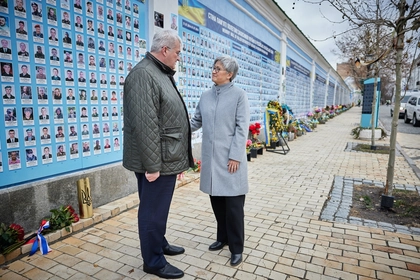Latvian security services revealed that Sergejs Sidorovs, a taxi driver who had been recruited through the “Baltic Anti-Fascists” Telegram channel through which he passed photographs and information relating to Latvian and NATO military activity.
According to the Latvian news agency LETA, Sidorovs passed reports on NATO operational and logistic activity around Riga while transporting military personnel from the airport to bases around the capital during 2023.
JOIN US ON TELEGRAM
Follow our coverage of the war on the @Kyivpost_official.
The court heard that he had volunteered to obtain information on military activity as he was able to “use his discreet appearance and his profession as a taxi driver to move and photograph NATO ships and loading and unloading activities in the port of Riga, as well as to spy on bases of NATO and their multinational personnel.”
Sidorovs was also available to pass on information relating to a base where NATO and Ukrainian drones were being tested and sought instructions from his contacts on how to build a bomb that could be used to a civilian oil terminal in Riga.
The Telegram channel that Sidorovs used was created by a group of Kremlin sympathizers, following Russia's full-scale invasion of Ukraine, called “Baltic Anti-Fascists,” which was specifically intended to collect confidential information on the defense of the country and pass it on to Russia.
The group is currently the subject of separate proceedings in the Latvian court.

Drones Strike High-Rise Buildings in Russia’s Kazan
Having been found guilty of espionage Sidorovs was sentenced to seven years imprisonment on Oct. 31 but said that he would appeal.
Since the 2022 start of the war in Ukraine, security services in the three Baltic states – Latvia, Estonia and Lithuania – have brought several cases of espionage involving civilians and spy networks to light. Many of these involve ethnic Russians leading Moscow to label them as “absurd,” “unfounded,” racially, and politically motivated.
The Russian Ministry of Foreign Affairs said it is concerned about human rights issues in Latvia and said it was closely monitoring the Sidorov’s case. The extent of the increase in espionage cases linked to Russian interests throughout the Baltic states is an obvious indicator of the battle between NATO’s interests in the region and the actions of Moscow to disrupt and undermine support to Ukraine.
You can also highlight the text and press Ctrl + Enter






